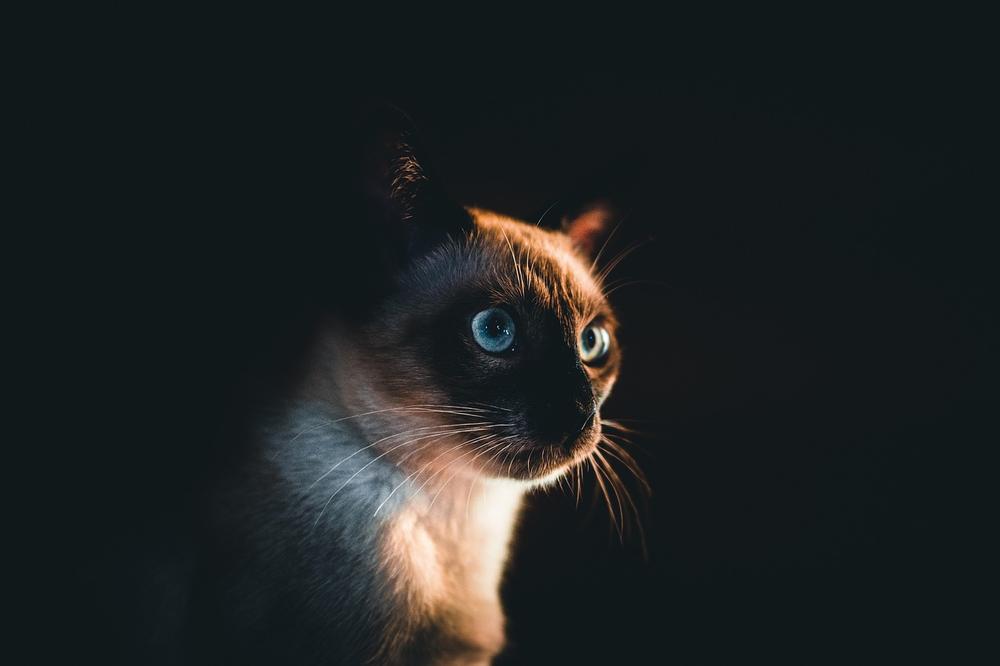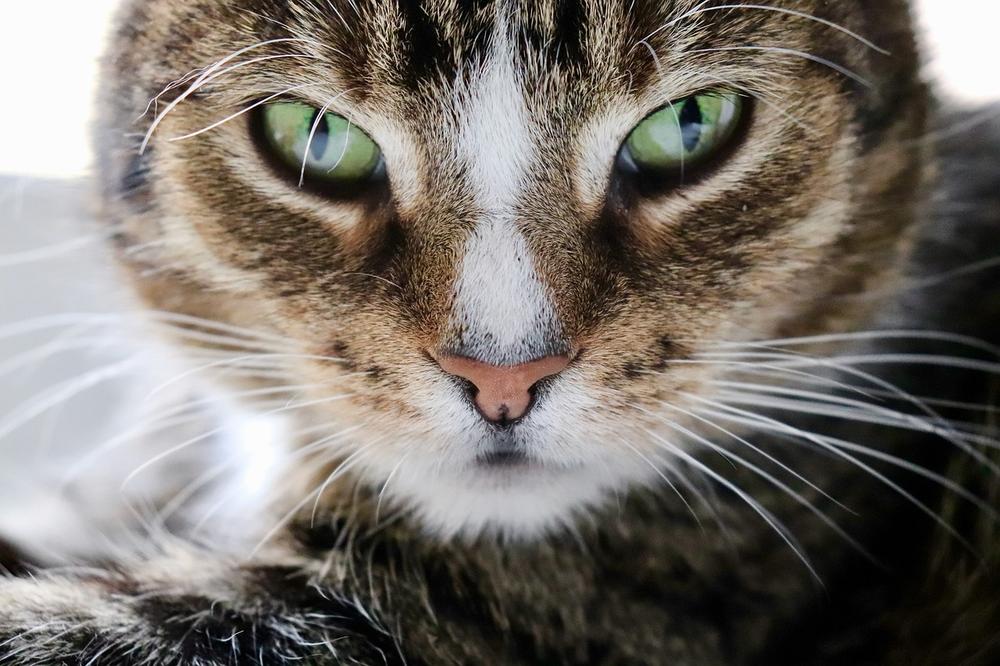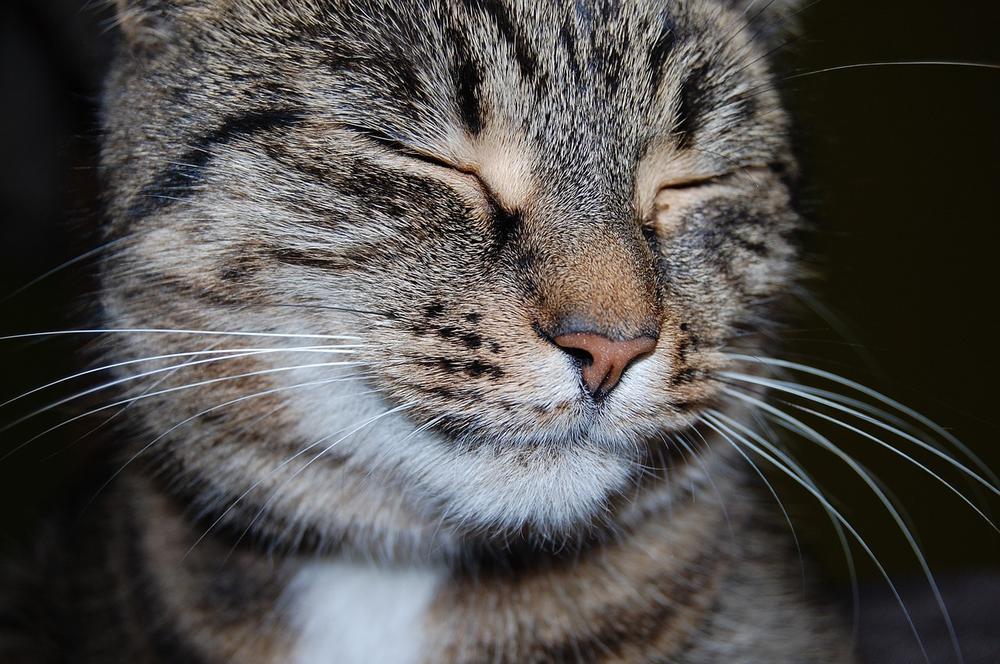Is Catnip a DRUG for Cats (And What Does It Do to Them)?

Do you feel that?
That nagging worry in the back of your mind, the concern for your feline companions? 😺
Is it possible that something as innocent as catnip could be a dangerous drug for your beloved cats?
Well, let's dive in and find out the truth.
Keep reading!
Is Catnip a Drug for Cats?
While cats may appear high when exposed to catnip, you need to note that catnip is not a drug for cats. It is a harmless herb that contains a compound called nepetalactone, which triggers playful behavior in cats when smelled or chewed.
Catnip...
The enchanting herb that seems to drive cats crazy.
However, let me clear up one misconception:
Catnip is not a drug for our feline friends.
Despite the appearance of your furry companion getting high, catnip is actually a type of herb, similar to mint leaves used in tea.
It belongs to the Nepeta cataria family and exerts a powerful influence over cats.

The magic lies within a compound called nepetalactone hidden inside catnip.
This psychoactive substance affects cats' mood and behavior when they smell or chew on it.
It triggers a release of this chemical, resulting in playful and hyper activity from your cat.
Rest assured, catnip is completely harmless.
In fact, it has been utilized for centuries as a natural remedy for issues like colic, flatulence, and yes, even cat toothaches.
So go ahead and give your furry friend a small amount of catnip every now and then.
It's a safe and enjoyable way to keep them entertained, and who knows, you might even have some fun watching their antics.
Main points I'll expand upon further down this article:
- Catnip works by interacting with a cat's olfactory system and brain.
- The main active oil in catnip, nepetalactone, mimics cat pheromones.
- Catnip binds to receptors in the brain, triggering euphoria in cats.
- Reactions to catnip can vary widely among cats.
- Catnip can induce both excitement and calming effects, lasting 5-30 minutes.
- About 70-80% of cats are genetically affected by catnip.
- Nepetalactone stimulates brain chemicals related to mood and happiness.
- Catnip can help calm cats and relieve anxiety, but effects should be evaluated.
- Avoid giving excessive amounts of catnip to prevent stomach upset.
- Catnip is safe for cats and humans, but should not be given as a treat or food.
But now, let me explain in more detail how catnip elicits these fascinating reactions in our feline companions...
What Are the Effects of Catnip on Cats?
Catnip is basically a drug for cats that makes them go wild.
Let me break it down for you so you get the full scoop.
Catnip is a plant that messes with your cat's brain in the most delightful way, thanks to this thing called nepetalactone - an active oil found in catnip that takes over your furry friend's olfactory system and brain.
It's like catnip gets your cat all hyped up on their own cat pheromones and you're about to witness quite the show.
But here's the catch:
Catnip can cause different reactions in cats. Some cats get super excited and playful, while others turn into aggressive little monsters. And believe it or not, some cats don't even react at all...
It's all about genetics and previous experience, or lack thereof.
Now, let's say your cat does respond to catnip.
How long does this crazy cat party last?
Well, my friend, anywhere from 5 minutes to a solid half hour of feline frenzy. Yep, catnip's effects are relatively short-lived.
But here's the thing: catnip isn't just about inducing wild behavior.

That nepetalactone I mentioned earlier also stimulates chemicals in the cat's brain responsible for happiness and relaxation.
So, it's not all about going nuts; catnip can actually soothe cats and help reduce anxiety.
However, before giving your cat some catnip, you need to think about what effect you want to achieve.
If you want calming vibes, then catnip might just do the trick.
But if you're looking for energetic playtime, be warned that catnip could send your cat into hyper-overdrive.
So, keep all of this in mind when deciding whether catnip is right for your furry friend.
It's like unlocking a mystery box of cat emotions and you're in control.
Now that you understand the effects of catnip, I bet you're even more intrigued.
So, stick around as we dive deeper into the safety of catnip for our beloved cats.
And here's the deal, my curious readers...
While catnip might seem like a mind-altering drug for cats, it's about time we explore its safety and whether our beloved feline friends can become dependent on this intriguing herb.
So brace yourselves as we uncover the truth and close the curiosity gap once and for all...
Can Catnip Be Addictive for Cats?
No evidence supports the notion that cats become addicted or dependent on catnip, but they might need a break after using it.
During this time, known as the refractory period, cats show no response to the herb.
Catnip doesn't lead to withdrawal symptoms or dependence. It's generally safe for our feline friends, with precautions, of course. One important tip is to ensure you don't let them consume too much in one go.

And while no evidence suggests that cats can become addicted to catnip, it's always good to offer them a break now and then when they've had their fair share.
During this refractory period, cats may not show any response to the herb.
However, if you're curious about other methods of keeping cats away from your yard or living space, I've written a helpful guide that explores the effectiveness of using ammonia.
Discover more in my article, Does Ammonia Keep Cats Away.
Are There Any Side Effects of Catnip on Cats?
Catnip is safe for cats and won't harm them or cause tolerance issues, but you need to give it in moderation because too much can give your cat a upset stomach.
To prevent these side effects, here's what you should do when giving catnip to your cat:
- Start small: Give your cat just a little bit of catnip at first and see how they react. If they like it and have no problems, you can gradually increase the amount.
- Use catnip toys: Instead of directly giving your cat catnip leaves or powder, try using toys filled with catnip. This way, your cat can enjoy the scent and play without ingesting too much.
- Watch their behavior: Keep an eye on how your cat acts after having catnip. If you notice any discomfort or strange behavior, stop giving them catnip and talk to your vet.
- Try other options: If your cat doesn't respond well to catnip or has tummy troubles after having it, consider using other calming methods like pheromone sprays or diffusers.
Also, catnip has a chemical that repels mosquitoes better than DEET, but its effect fades quickly, so relying solely on it as a bug repellent might not be the best idea.
Always remember, keeping your cat happy and healthy should be your number one priority! ✨
Now, you might be wondering...
What about kittens?
Can they enjoy the benefits of catnip too?
And are there any alternatives available if your cat doesn't respond to catnip?
Let's dive into the fascinating world of catnip and explore some interesting options for our furry friends.
Are you ready?
Is Catnip Safe for Cats of All Ages?
Is catnip safe for cats of all ages?
Let's find out:
- Kittens don't really get into catnip until they're about 3-6 months old, so don't fret if your little furball isn't interested yet.
- Catnip is usually safe for cats, but it's not the best idea to use it as a treat or food. It's better to use it sparingly during playtime.
- If your cat doesn't react to catnip, there are other options you can try, like silvervine or valerian root, which might have similar effects.
- Now, onto training! Yes, cats can learn too! Just like dogs, they can understand what's acceptable and what's not. You should discourage behaviors like scratching furniture or jumping on counters.
- Always gently guide your cat towards the right behavior and reward them when they do well. A healthy and happy kitty starts with proper guidance and understanding.
So, catnip can be a fun and safe experience for most cats, just make sure to use it responsibly and provide guidance for a well-behaved feline friend. 😺
How to Use Catnip with Your Cat
Alternative Options for Non-Responsive Cats
So, you've tried catnip with your kitty and they're just not feeling it?
No worries, there are other plant options that can give them similar effects.
Some cats might prefer Silvervine or Valerian Root instead of catnip.
These plants can be a great alternative if catnip doesn't do the trick for your furry friend.
Catnip: More Than Just Fun
Did you know that catnip has additional benefits besides being a fun toy for your cat?
Catnip can actually help bust boredom and assist with training!
Yes, you heard right!

It's not only a way to keep your cat entertained but also redirect any unwanted behaviors they may have.
How to Introduce Catnip to Your Furry Friend
Okay, so now you're ready to introduce catnip to your cat.
But how should you do it?
Well, there are a few different ways you can tackle this.
You can use catnip toys, sprinkle catnip on their existing toys or scratching post, or even try incorporating catnip in various formats like dried herbs, fresh leaves, infused toys, chews, or extracts. Oh, and one important tip – ensure to store dried catnip in an airtight container in the freezer.
This will help preserve its freshness and ensure your cat can fully enjoy it.
That's all for now.
Stay tuned to learn more about how you can add some excitement to your furry friend's life!
And that wraps up today's article.
If you wish to read more of my useful articles, I recommend you check out some of these: Does Lavender Keep Cats Away, Why Do Cats Like Vaseline, Does Cinnamon Keep Cats Away, and Do Fake Owls Keep Cats Away
Talk soon,
-Sarah Davis